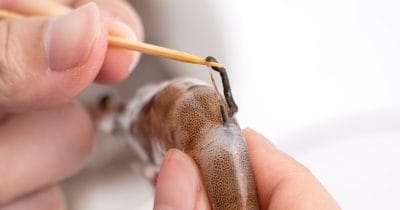
We all love the ocean, and for those of us who aren’t lucky enough to live close by it’s something most of us dream about doing every summer.
But our oceans and what lives in them are suffering due to something that is used by us all every day — plastic.
The amount of plastic that is floating in our beautiful seas is shocking.
And nothing illustrates this more shockingly than the image of a dead sperm whale washed up on the shores of a beach. Nearly 50 lbs of plastic was found in its belly.
A fetus was also found in the whale’s belly.

Just to put that into context 50 lbs can be compared to two big bags of dog food or a small bale of hay. But as plastic, floating around the stomach of a whale, must have been extremely painful.
This beautiful sperm whale, an endangered species, was found washed up on the shores of Porto Cervo in Sardinia, a popular Italian beach resort.
She is one of at least 5 whales that have died from plastics over the last two years, according to The World Wildlife Fund, as reported by Business Insider.
“She was pregnant and had almost certainly aborted before she beached,” Luca Bittau, the president of the SeaMe group, told CNN.
Steps to ban single-use plastics
In the Philippines, a Cuvier’s beaked whale was found washed up dead with 88 pounds of plastic in its stomach.
The amount of plastic was preventing the whale getting any nourishment from food and it died from dehydration and starvation after vomiting blood, scientists said.
Luca Bittau told CNN that veterinarians in Padua, Italy, would be carryng out various tests to determine the exact cause of death but it is likely related to plastic also.
On average, 8 million metric tons of plastic enter the ocean every year.
Measures are being taken by cities and countries around the world to ban single-use plastics: The European Parliament has approved a law banning single-use straws, cotton balls, and cutlery by 2021.

Plastic is making our oceans sick and if this doesn’t make you stop and think, I don’t know what will. Every effort to cut our use of plastics, however small, helps.
Please share to highlight this problem.





